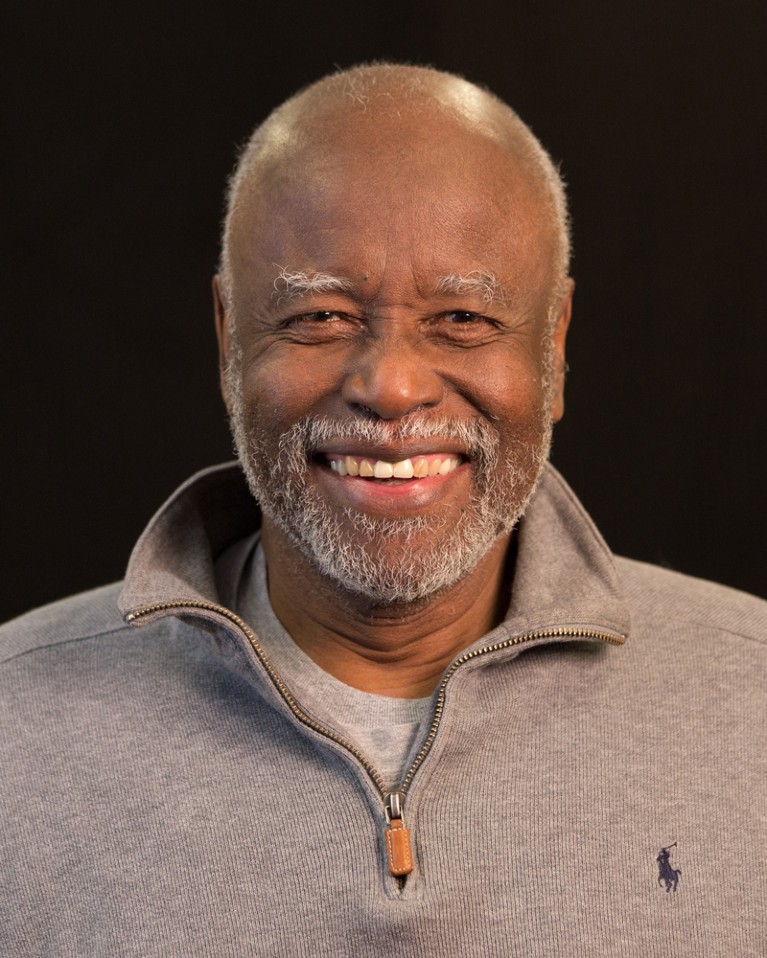
Bill Carter Jenkins.Credit: American Friends Service Committee
Bill Jenkins was a newly minted statistician in 1968, and one of the first black officers in the United States Public Health Service (PHS), when a colleague told him about a government study. Titled ‘Untreated Syphilis in the Male Negro’, it had been going since 1932 in and around Tuskegee in Macon County, Alabama. With a background in the civil-rights movement, Jenkins became troubled. Why was the syphilis untreated when penicillin had proved to be a reliable cure for more than 20 years? Why was the focus only on black men? Did the men understand what they had consented to? He turned his concerns into political and scientific action for the rest of his life.
Jenkins — still just 22 years old — found the study’s 12 published medical and public-health journal articles. For more than 3 decades, nearly 400 Alabama African American men with late-stage syphilis, and almost 200 without the disease, had been followed, but not treated. Unchecked, syphilis ravages every organ, from heart to brain. When the study began, the reigning medical assumption was that syphilis exhibited a different aetiology in black people, and that the available heavy-metal treatments might be harmful to all patients. The study found that life expectancy dropped by 20% in the untreated men compared with the study’s control group.
Jenkins knew that something had to be done. He discussed his qualms with a group of professionals he worked with on discrimination at what was then called the US Department of Health, Education, and Welfare, and with a more militant group around a bookshop in Washington DC called Drum and Spear. They drew up a report on the Tuskegee study, sent out a few press releases, and waited. Nothing happened. Only later did Jenkins discover that his major supporter at the PHS had been a statistician working on the study’s data.
Jenkins and his group were not alone in their objections, but they did not know this. At least two physicians had written to the PHS since the 1950s, asking why the study was still going. Also, in 1968, Peter Buxtun, who investigated sexually transmitted diseases for the PHS in San Francisco, California, started raising questions to higher-ups in the service. After four years of being stonewalled, he gave the story to a friend who worked for the Associated Press.
On 26 July 1972, under the headline ‘Syphilis Victims in U.S. Study Went Untreated for 40 Years’, the story splashed across the nation’s newspapers. Now labelled “a moral nightmare”, the needless deaths and debilities of the men and their families were detailed. Within the year, the study was stopped, the US Senate and a federal panel investigated, and a lawsuit was filed. The debacle led to the creation of federal guidelines for ethical research, and the word ‘Tuskegee’ lives on as shorthand for racism in health care and medical research.
The study gave direction to Jenkins’ life. He earned a master’s degree in biostatistics, another in public health and a doctorate in epidemiology. At the Centers for Disease Control and Prevention (CDC) in Atlanta, Georgia, he linked the demand for good data to social justice. During the 1980s, as the AIDS epidemic expanded into black communities, he became director of the AIDS prevention for minorities programme at the CDC.
For ten years, he ran the programme that provided lifetime medical care to the survivors of the study in Tuskegee, and to members of their families who also had the disease. He knew many of these people personally, and realized that their needs went further. Thanks to his lobbying, the programme was expanded to give the families access to home health care and reasonable nursing home care. The last of the men who had been in the study died in 2004, and the surviving wives in 2009.
Jenkins understood that structural racism underlay the health disparities that epidemiologists would calculate, and that more people of colour had to be brought into the professional ranks of health-care providers to restore trust. He was one of the founders of the Society for the Analysis of African American Public Health Issues, which links scientific knowledge to policy change. He taught epidemiology at Morehouse College, a historically black institution in Atlanta for men that was his alma mater, and he founded a summer internship there for under-represented students with interests in public health. He also started a master’s programme in public health at the nearby Morehouse School of Medicine. He taught at the University of North Carolina at Chapel Hill, where he organized an annual conference on minority health.
In 1996, Jenkins was a key member of the Tuskegee Syphilis Study Legacy Committee that pressured then-president Bill Clinton to offer, finally, a federal apology for the study. On 16 May 1997, Jenkins was in the East Room of the White House with other leaders of the black community, several of the study’s last survivors, and others to hear Clinton admit that what the government had done “was wrong”.
Jenkins never thought that an apology was enough. He helped to shape the demand by the Legacy Committee for a bioethics centre at Tuskegee University that the CDC contributed to as part of reparations. He made a short documentary that highlighted the viewpoints of remaining survivors. He spoke all over the country on issues of health care and justice for black people. He exuded warmth, a joy for life and a real commitment to social change and justice.
As a historian of the study in Tuskegee, I had the pleasure of knowing Bill for more than 25 years. We worked on the apology together and spoke at conferences, and he taught me much. He always reminded me to turn anger into arguments and policies that make a difference in people’s lives. His charismatic leadership, commitment and the thousands whose lives he changed will outlive him.

 Chemistry: The hidden war
Chemistry: The hidden war







